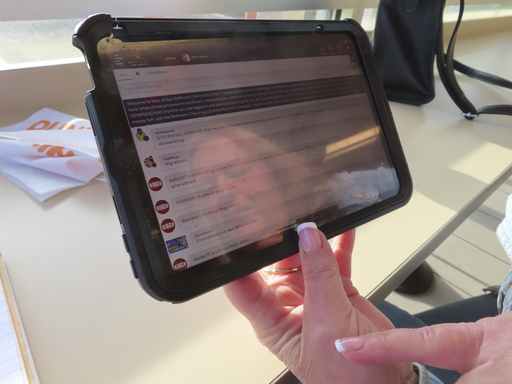
Lawmakers from various states that have legalized gambling are advocating for guidelines aimed at other states contemplating the introduction of online gambling. These guidelines include suggested tax rates ranging between 15% and 25% and a prohibition on using credit cards for deposits.
Recently, the National Council of Legislators from Gaming States unveiled proposed legislation intended for states evaluating the possibility of legalizing internet gambling. This proposal is set to be examined during the organization’s upcoming winter meeting in New Orleans.
The model legislation is crafted to provide a foundational framework for states to tailor their laws while borrowing effective practices from states where online gambling has already been successfully implemented.
Currently, seven states in the U.S. allow lawful online casino gaming: Connecticut, Delaware, Michigan, New Jersey, Pennsylvania, Rhode Island, and West Virginia. Additionally, Nevada permits internet poker but does not allow full-fledged online casino games.
Shaun Fluharty, a West Virginia Democratic state delegate and president of the council, noted that while many states are eager to explore this option, they have struggled to finalize legislation. “We aim to compile best practices for these states,” he stated.
The proposed regulations closely reflect existing laws from New Jersey, a pioneer in the realm of internet gambling regulation since 2013. David Rebuck, the former head of New Jersey’s Division of Gaming Enforcement, provided insights to the lawmakers regarding this proposal.
“Most of our framework aligns with New Jersey’s regulations, which is encouraging,” Rebuck remarked. “This serves as an excellent starting point that builds upon effective practices already operational in other jurisdictions.”
The legislation emphasizes stringent oversight of online gambling to safeguard consumers and eliminate unscrupulous actors and companies from the industry. It also includes provisions to set up a regulatory agency dedicated to overseeing online gaming, should one not already exist.
The proposal restricts deposits to a maximum of $20,000 within a 24-hour span and bans credit card usage for funding gambling accounts. Fluharty mentioned that the suggested tax bracket of 15% to 25% is a baseline for discussion, noting that while this range may exceed the rates in some states, it remains significantly lower than others, like Pennsylvania, which taxes online sports betting at 36% and online slots at 54%.
According to Fluharty, the national average tax rate for online gambling stands at around 19%, while West Virginia’s rate is 15%. He explained that the aim is to avoid creating barriers that could deter smaller operators from entering the market due to excessively high taxation.
Fluharty also highlighted Maryland’s efforts to pass online gambling legislation, which succeeded in the House but stalled in the Senate earlier this year. Other states, including Ohio and Louisiana, are also considering their respective online gambling initiatives. New York has been exploring the legalization of online casino gaming under a 31.5% tax rate but has only seen success with online sports betting thus far.
Rebuck anticipates that more states will seriously consider internet gambling in the coming year, driven by the increasing pressure on budgetary constraints.
